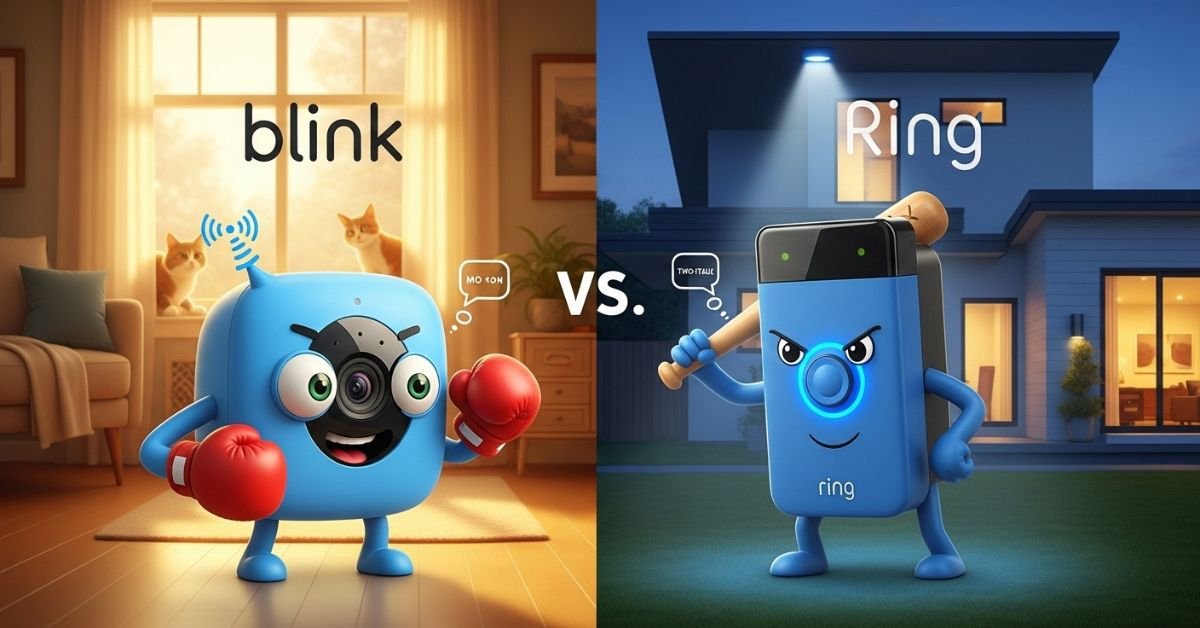Wearable technology has rapidly become a part of daily life for fitness enthusiasts, professionals, and tech users alike. Fitness bands and smartwatches are two of the most widely used wearables. While they may seem similar at first glance, they serve different purposes and suit different lifestyles.
This article offers a comprehensive comparison of smartwatches and fitness bands, helping you decide which is better for your needs.
Contents
Purpose and Functionality
Smartwatch:
A smartwatch is essentially a mini-smartphone on your wrist. It combines fitness tracking with communication features. Most smartwatches support app notifications, call handling, GPS, music control, voice assistants, and more.
Fitness Band:
A fitness band, often called a fitness tracker, focuses mainly on health and activity monitoring. It monitors workouts, sleep, heart rate, and steps. It generally lacks advanced connectivity features but performs well as a simple health companion.
Key Difference:
Smartwatches offer all-round smart features, while fitness bands stick to essential fitness tracking.
Design and Comfort
Smartwatch:
Smartwatches come with larger displays, metallic or premium builds, and offer a stylish look. However, their size and weight can make them less comfortable for continuous wear, especially during sleep.
Fitness Band:
Fitness bands have a comfortable design, are small, and light. They’re ideal for round-the-clock use, including workouts and sleeping.
Verdict:
If comfort is your top priority, especially during physical activity, fitness bands are better suited.
Display and User Interface
Smartwatch:
Smartwatches usually have larger, full-color touchscreen displays that can show detailed graphics, maps, and app interfaces. They provide a more interactive experience.
Fitness Band:
Fitness bands typically have smaller displays with limited touch controls. They show basic information such as time, steps, and heart rate.
Verdict:
If you want a vibrant, easy-to-navigate interface, smartwatches win. If minimal display is enough for your needs, fitness bands are sufficient.
Battery Life
Smartwatch:
Due to their high-end displays and multi-functionality, smartwatches usually require charging every one to three days.
Fitness Band:
Fitness bands are designed to be energy-efficient, often lasting one to two weeks on a single charge.
Verdict:
Fitness bands are the better choice if long battery life is essential for you.
Connectivity and Notifications
Smartwatch:
Smartwatches support advanced connectivity options such as Bluetooth, Wi-Fi, and in some cases, cellular (LTE). They allow you to view and reply to notifications, answer calls, and access apps directly.
Fitness Band:
Fitness bands offer limited notifications—mostly alerts for calls, messages, and apps. Interaction is minimal or non-existent.
Verdict:
If staying connected without checking your phone is important, smartwatches provide a more complete experience.
You Might Also Like: Wireless Earbuds vs Neckband: Which One Should You Choose?
Fitness and Health Tracking
Both devices provide basic fitness tracking like:
- Step counting
- Calorie burn estimates
- Heart rate monitoring
- Sleep tracking
Smartwatch Advantages:
- Built-in GPS
- Stress and blood oxygen level tracking (SpO2)
- ECG (in high-end models)
- Workout recognition
- More precise data with companion apps
Fitness Band Advantages:
- Simpler interface
- Long-lasting battery
- Often water-resistant for swimming
Verdict:
Fitness bands offer great value for general fitness. For advanced tracking and multi-sport modes, smartwatches are more capable.
Price and Affordability
Smartwatch:
Smartwatches are generally more expensive, with prices ranging from $100 to $500 or more depending on brand and features.
Fitness Band:
Fitness bands are budget-friendly, typically priced between $20 to $100.
Verdict:
If budget is a concern, fitness bands are ideal. Smartwatches justify their cost with added functionality.
Durability and Usage Scenarios
Fitness Band:
Designed for rough use, many fitness bands are waterproof or splash-resistant. They’re best for users who want to track activities without worrying about damaging the device.
Smartwatch:
While smartwatches are also durable, they may be prone to scratches and require more care due to their larger displays.
Verdict:
For rugged, daily physical activity, fitness bands may offer better durability and practicality.
Compatibility and Ecosystem
Smartwatch:
Smartwatches integrate well with specific ecosystems. For example, Apple Watch works best with iPhones, and Samsung Galaxy Watch works best with Samsung phones. Many smartwatches also allow app installations and sync with health platforms like Google Fit or Apple Health.
Fitness Band:
Fitness bands usually offer broader compatibility and work well across Android and iOS platforms, but with limited app support.
Verdict:
Smartwatches provide more integrated experiences if you are already in a specific ecosystem.
Use Case Scenarios
Here’s a quick guide to help you decide based on lifestyle:
| User Type | Recommended Device |
|---|---|
| Casual walkers | Fitness Band |
| Gym-goers | Fitness Band |
| Professionals | Smartwatch |
| Tech enthusiasts | Smartwatch |
| Students on a budget | Fitness Band |
| Health-conscious seniors | Fitness Band |
Final Verdict
Choose a Smartwatch if:
- You want a combination of communication and fitness features
- You need an interactive display and advanced sensors
- You are okay with frequent charging
- Budget is not a constraint
Choose a Fitness Band if:
- You want a lightweight, long-lasting fitness tracker
- You need basic health features only
- You’re looking for an affordable entry-level wearable
- You want something easy to use and comfortable all day
Both devices serve their own purposes. The best one for you depends on how much you value smart features versus simplicity, battery life, and price.
FAQs
Can I wear a fitness band while sleeping?
Yes, most fitness bands are designed for 24/7 use, including during sleep, and they track sleep patterns effectively.
Do smartwatches work without a phone?
Some smartwatches with LTE support can work independently, but most require a phone for full functionality.
Are fitness bands accurate in tracking?
For general fitness metrics like steps and heart rate, fitness bands are fairly accurate. However, smartwatches may offer more precise data.
Is it worth upgrading from a fitness band to a smartwatch?
If you find yourself needing more features like notifications, app access, or deeper health tracking, a smartwatch is a worthy upgrade.
Which is better for older adults?
Fitness bands are simpler to use, lightweight, and offer essential health tracking, making them more suitable for older adults.
Conclusion
Smartwatches and fitness bands may look similar, but their functions and purposes differ significantly. Understanding your personal needs is key to making the right decision.
On your blog, providing such well-researched, unbiased content builds trust with your readers and improves your chances of ranking on search engines.
If you’re looking for more product comparison articles like this, stay consistent with publishing detailed, honest guides — that’s the real key to building a loyal audience.



